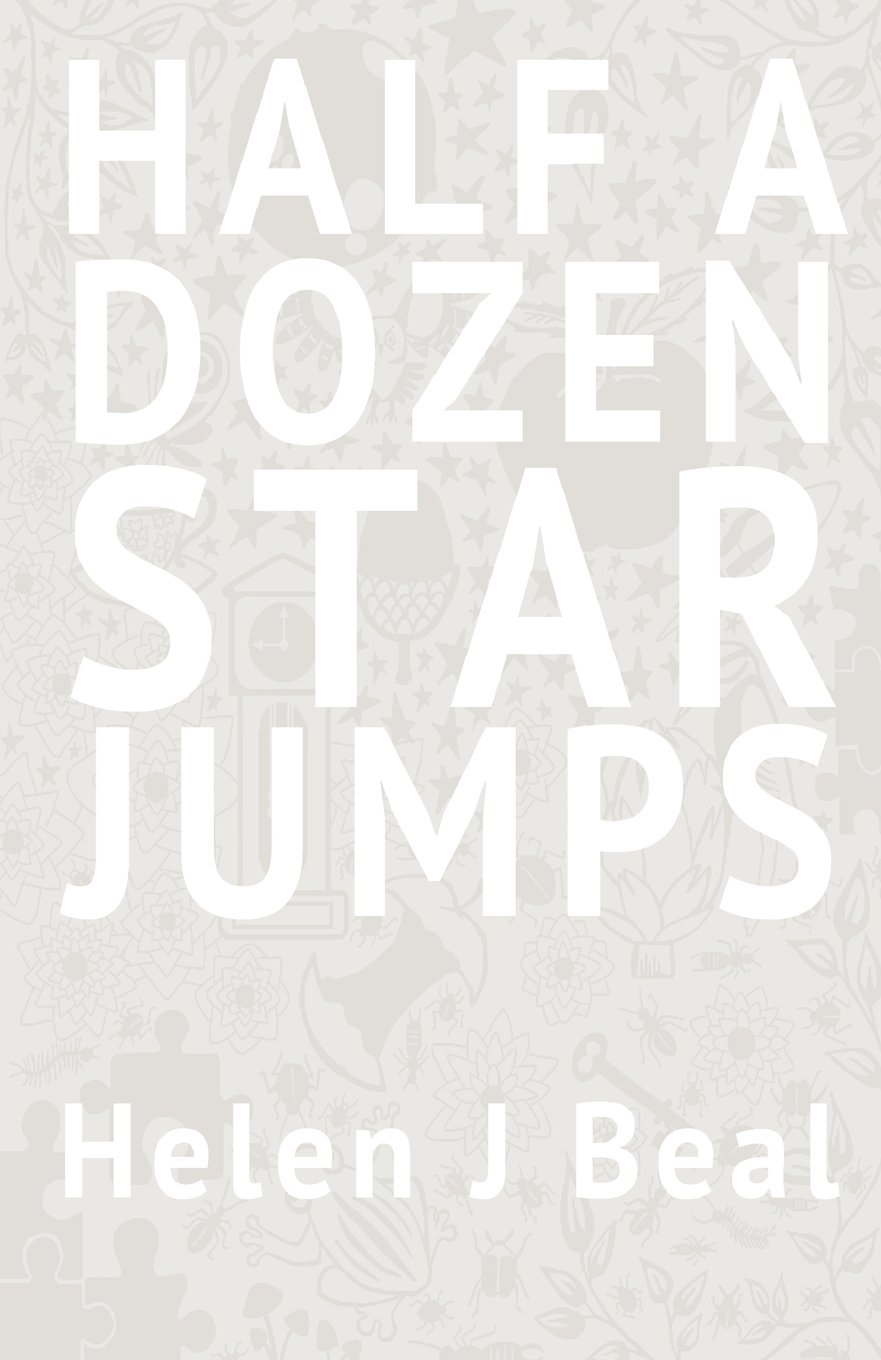Half a Dozen Star Jumps by Helen J Beal is a collection of six short stories.
The first, "The Sculptor's Muse" is the story of an artist enchanted by a singer. Red, black and white play a motif through this short and sweet story.
First Sentence:
"I heard her first."
Inspiration comes in many forms and a muse can be a reciprocal thing.
In the second, "Blackberry and Apple Crumble", a young, married couple are hitting a few snags in their very new marriage. This causes a lot of tension. So when they discover that both their phones are missing, they are quick to blame each other. Can the Christmas spirit and some delicious treats bring back the spark?
First Sentence:
"Larry wandered down the stairs dressed in yesterday's underpants and a burred sweater Meg had bought him when he was in a fat phase."
This is a humorous little story that defines the saying, "You are what you eat."
Thirdly, there is "The Jigsaw Fairy".
First Sentence:
"As he turned the key in the back door lock Dan thought about the last time he'd been here."
Dan ran away from home in the middle of the night three years ago when he was sixteen. His parents were overly critical and unsupportive, so he just packed up and left. One Christmas Eve, he left a jigsaw puzzle on their doorstop. Now he's breaking into the house to finish it for them. He's certainly planning on leaving his mark.
Next is "The Blight of Blossom".
First Sentence:
"I am old now and it is dusk in the cherry orchard."
An old woman looks out over a cherry orchard and reminisces about how the human race fell, leaving a few survivors to rebuild on the moon. They live in a biodome where everything is controlled. She remembers what life was like before the end came, and what's come since.
Loneliness has many forms.
In the penultimate story, "Flutter to a Fall" we meet eighteen-year-old Tilly and her friend, Izzy.
First Sentence:
"A floorboard creaked under Tilly's sandal as she stopped at the window."
Returning from a week at Glastonbury, the two girls are staying at Izzy's house (well, castle. A huge castle) with the rest of her family. On the night they arrive, Tilly spots an owl. The family react very oddly to this news.
Every castle has its ghosts. People are complex. Sometimes, you have to see the signs.
The last story is "The Thought Collector", and is based on real events. When the World Trade Center stood before 9/11, one of them held a 28-inch, bronze cast of Rodin's "The Thinker".
First Sentence:
"I am tense."
"The Thinker" sits all day and contemplates. He is a thought collector. When someone touches him, he collects their thoughts. One day Laura touches him and he is given insight to the immediate things on her mind. Through her he sees and feels the towers collapse. The panic that ensues.
Buried in the rubble, he is found by a firefighter- Laura's husband. Through Laura's description of her workplace, he remembers "The Thinker" cast, and keeps it as a piece of her.
Ten years later, he still clings to the bronze statue, that weeps because all it can do is collect. It cannot help the broken man, but maybe someone else can.
A little background on this story. For those who don't know, one of the towers of the World Trade Centre had a 28-inch, bronze cast of 'The Thinker'. It was recovered from the rubble by a firefighter, then vanished. Even all these years later, the location of the missing cast is unknown.
These are six stories about the intricacies of the human mind. Our relationships with each other and the symbolism we find in the smallest things.
They are beautifully written, with prose-like characteristics and charm. Delightfully emotive, they will play bittersweet melodies on the heartstrings. There are jovial, lively bars and slow, mournful ones, with the entire book ending on a single, melancholy note.
There are a few abstract aspects to these stories, but I think that just adds to the atmosphere the author creates. Things are not always as they seem.
My favourites are probably "The Sculptor's Muse" for its originality and gorgeous description, and "The Thought Collector" for its insight into one man's sorrow and the unusual voice of the narrator.
A quick set of stories, that are very well-written and well worth a read.
Disclaimer: This book was sent to me by the author through a giveaway. This is not a sponsored review. All opinions are 100% my own.








